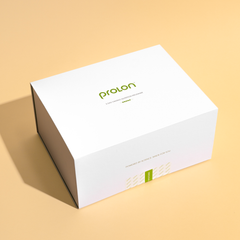What is the difference between the definitions of common fasting, physiologic, and molecular (cellular) fasting?
- Common Definition: Abstinence from all or some kinds of food and drink.
- Physiologic Definition: The switch from burning glucose for energy to burning fatty acids and ketones as a main source of fuel.
- Molecular (Cellular) Definition: The state in which nutrient sensing pathways are inactive or down-regulated.
ProLon fasting mimicking diet causes you to enter both a physiologic and molecular fasting state. It doesn’t trigger nutrient sensing pathways, meeting the molecular definition of fasting. It also triggers the switch from burning glucose for energy to burning fatty acids and ketones as the main source of fuel, so it meets the physiologic definition of fasting.
ProLon fast mimicking diet also stimulates stress resistance. An important part of stress resistance is autophagy, or cellular clean-up, where the cell targets cellular debris such as misfolded proteins and worn-out cellular components for recycling, leaving the cell rejuvenated.








